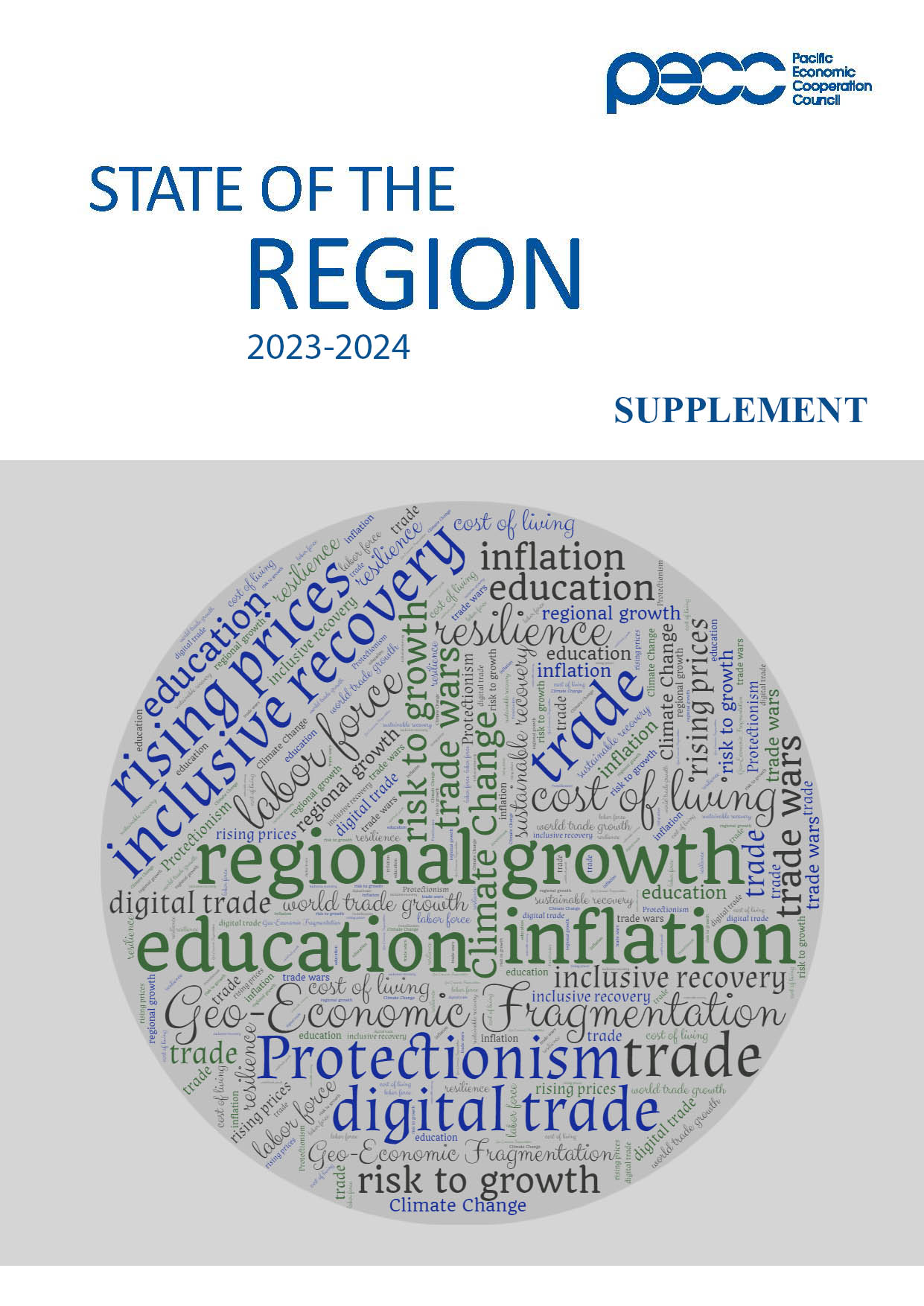 PRESS RELEASE: STAKEHOLDERS HOPEFUL FOR POSITIVE OUTCOMES FROM APEC MEET
PRESS RELEASE: STAKEHOLDERS HOPEFUL FOR POSITIVE OUTCOMES FROM APEC MEET
12 November 2023
Making progress on regional trade and geo-political tensions topped the list of issues stakeholders think APEC Leaders should address when they meet in San Francisco later this week. This was followed by making supply chains more resilient in the aftermath of their fragility exposed during the pandemic and then long-term policy reforms considering the slower growth trajectory of regional economies.
Respondents continued to be negative about the growth prospects for the global economy. “Our survey revealed a pervasive sense of insecurity – around geopolitics, economics, climate, and health, food, and energy security,” said Dr Richard Cantor, co-chair of the Pacific Economic Cooperation Council (PECC).
Although the global and regional economies are recovering from the 2020 hit brought on by the pandemic, with the region expected to grow by 3.2 percent, respondents continue to be pessimistic about the global outlook, with 47 percent expecting slower growth compared to only 14 percent expecting stronger growth.
“Inflation remains the outlier among risks to growth, with rising prices expected to be higher for longer than previously expected,” said the report’s coordinator, Mr Eduardo Pedrosa. Over 50 percent of respondents selecting it as a top 5 risk to growth for their economies followed by a closely clustered set of risks - climate change, which was followed by concerns about slower trade growth; geo-economic fragmentation; and increased protectionism.
The survey also revealed concerns about the inclusiveness of the recovery. Although 76 percent of respondents thought that the recovery was moderately inclusive, specific parts of society were seen as lagging – small businesses and the most vulnerable groups of society and economy – the informal sector; the elderly, and youth, and ethnic minorities. Education, rapid technological and the lack of social safety nets were seen impacting inequality the most. Initiatives that specifically address these issues were seen as the most important work governments could do. While trade was seen as largely positive for growth, there were concerns about its impact on inequality. More work needs to be done to improve government consultation with a broader range of stakeholders to identify and respond to concerns at the local level.
Looking ahead to when APEC Leaders meet in San Francisco later this week, ameliorating geopolitical and trade conflicts in the region; strengthening supply chain resilience; and structural reforms that promote growth and aid in anti-corruption; climate change; and supporting the multilateral trading system were seen as top priorities for discussions. “While climate change and rapid technological change present formidable challenge for the region, deeper cooperation can help economies harness their potential to address these issues and harness their potential for stronger and more sustainable and inclusive growth,” said Ambassador Zhan Yongxin, co-chair of PECC.
The survey findings support APEC’s focus this year on “Creating a Resilient and Sustainable Future for All.” “The challenges we face in confronting the aftermath of the Covid-19 pandemic and rising concerns over climate change should help to bring us together to find solutions to shared problems”, said Dr Cantor.
(For full report: click here to download)

